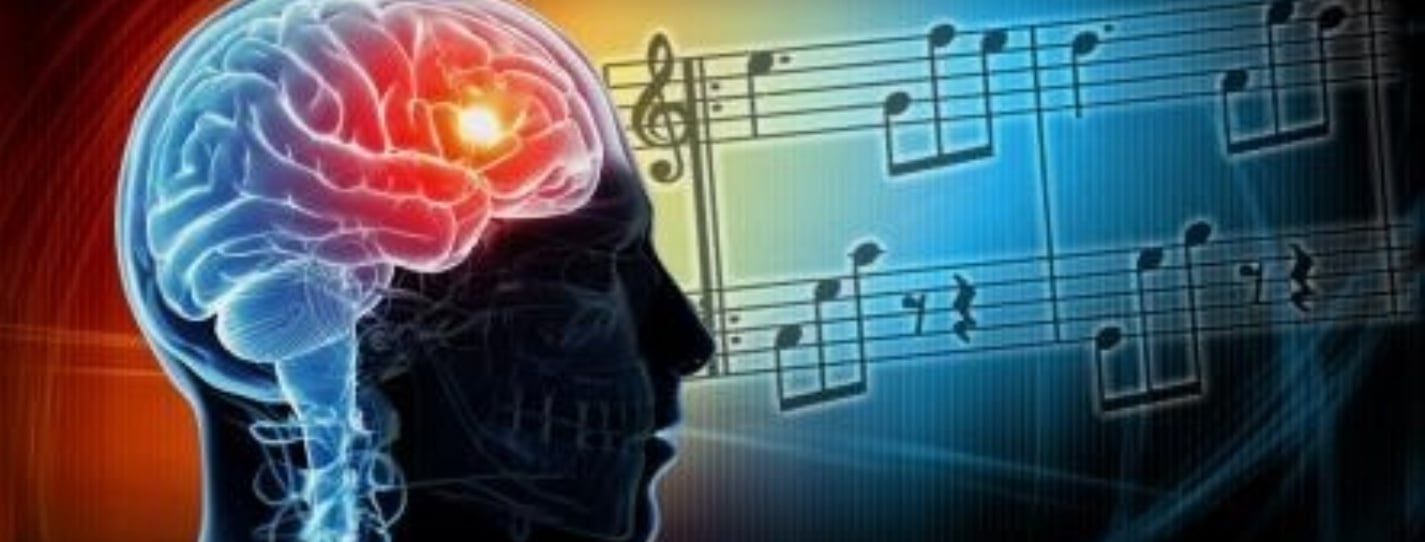Music is Changing Behaviors & Re-Wiring Brains

“Music is an important part of our physical and emotional well-being, ever since we were babies in our mother’s womb listening to her heartbeat and breathing rhythms.” -- Franz Wendtner, Clinical Psychologist, University (General) Hospital Salzburg
It’s an intuitive, increasingly acknowledged fact that music is a powerful motivational tool. Perhaps you play music in the morning to help you wake up, enlist the radio when driving to help stay focused and alert, or listen to music during your workouts. Over the past half-century, countless studies have shown the positive correlation between music and activities as diverse as exercise and shopping. Music’s ability to help us perform better and “stick it out” is a behavioral result.
What’s lesser known: music can also deliver long-term physiological results, re-wiring our brains in a process known as neuroplasticity. Neuroscientists offer the following shorthand for this re-wiring phenomenon: “Neurons that fire together, wire together.” Research has shown music’s ability to increase neuroplasticity, and there are many innovative, music-powered solutions to age-old medical problems that affect all of us.
“…The promise of music as medicine is that it's natural and it's cheap and it doesn't have the unwanted side effects that many pharmaceutical products do.” – Dr. Daniel J. Levitin, Neuroscientist & Author of This is Your Brain on Music
For the reasons Dr. Levitin identifies above, it’s worth considering how music can drive healthier behaviors and physiology in our fast-paced modern lives.
Changing behaviors through music
Corporate wellness programs
CNBC recently reported that employee mental health costs are rising twice as fast as all other medical expenses, citing anxiety and depression as the biggest culprits. While corporate wellness programs are mostly known for investing in physical health, “some employers are making the treatment of mental illness a top priority—on par with combating cancer, diabetes and other chronic ailments…” Employers and employees alike may be surprised to understand that listening to (and making) music has been proven to reduce garden-variety stress and treat specific mental health illnesses.
Physical fitness
The world-leading researcher on music for sports performance, Dr. Costas Karageorghis, explains that one can think of music as “a type of legal performance-enhancing drug.” For professional and amateur athletes alike, music distracts from fatigue sensations and less oxygen is needed to do the same work. Even greater results are realized when movements are synchronized to the music’s tempo. Long story short: pairing music with workouts drives better performance, stronger results, and more enjoyment.
Re-wiring our brains through music
Health recovery
We’ve come a long way from the early days of music therapy, which “formally began after World War I, when professional and amateur musicians played for veterans who had suffered physical and emotional trauma as a result of the war.” In addition to helping people manage the stresses of daily life, music therapy encompasses music-based treatments to a variety of life-threatening diseases.
The renowned neurologist and author of Musicophilia Oliver Sacks said that, “Music evokes emotion, and emotion can bring with it memory… it brings back the feeling of life when nothing else can.” This seemingly sentimental observation has great medical value. By pairing music with everyday activities, Alzheimer’s patients can develop a rhythm that helps them to the recall the memory of that activity, re-wiring their brains and improving cognitive ability over time.
Physical movement
Music therapists have discovered physiological benefits to pairing music and movement in treating a variety of medical conditions. Therapist Elizabeth Stegemoller shares that “I have worked with many people with Parkinson’s disease and have seen how music can provide an external cue for patients to walk in time to, allowing them to overcome freezing.”
Psychologist Dr. Teppo Sarkamo notes “everyday music listening during early stroke recovery offers a valuable addition to the patients' care…by providing an…easy-to-conduct and inexpensive means to facilitate cognitive and emotional recovery.” The innovative medical tech company MedRhythms is going one step further, “using sensors, software and music to help people who have suffered brain injuries recover their walking functions."
This article only scratches the surface of the ways music is being used to support behavioral and physiological changes. For other powerful examples, check out our recent blog piece “Music is Drug of Choice.” As music therapists and neuroscientists continue revealing previously hidden connections between music and the brain, there is much greater potential for healing and health.
Image Credit: New-Paradigms.WS

 3 min
3 min